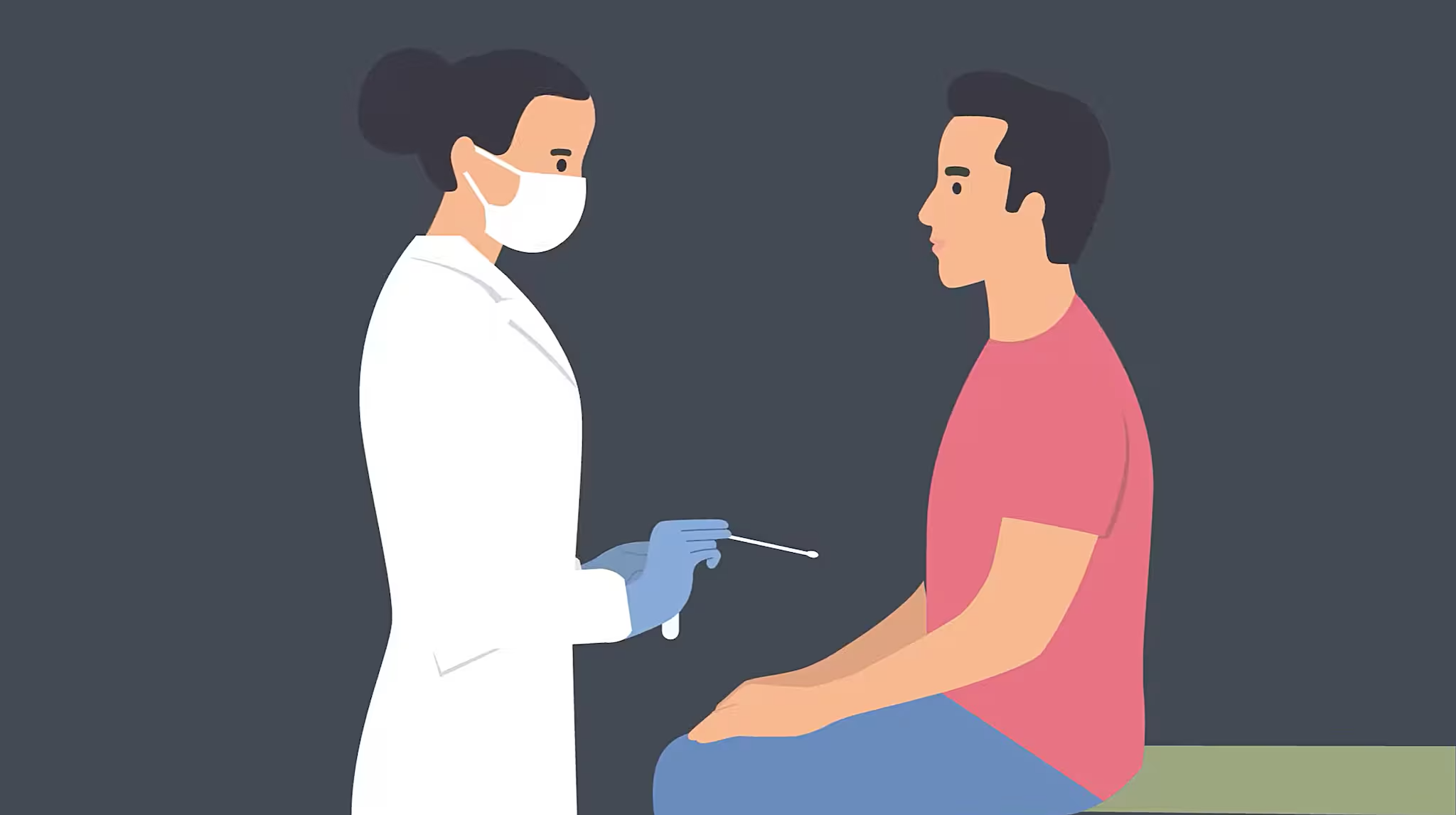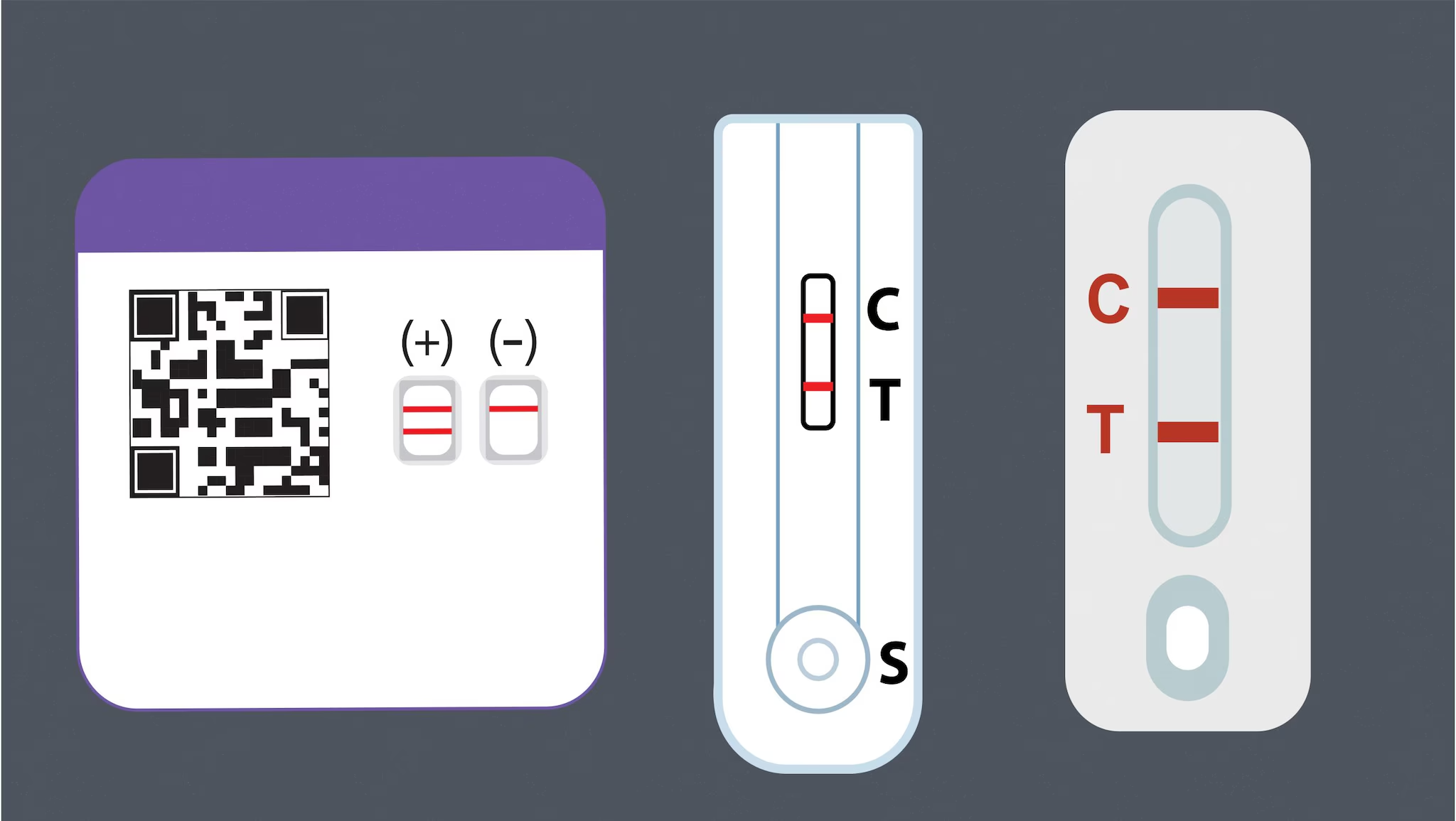COVID-19 Testing: What You Need to Know
COVID-19 testing can help you know if you have COVID-19 so you can decide what to do next, like getting treatment to reduce your risk of severe illness and taking steps to lower your chances of spreading the virus to others
When you get tested:
- Choose the right type of test for your circumstance
- For antigen tests, follow test directions as recommended by FDA and the test manufacturer
If you do not, your results may be less likely to correctly indicate whether you have COVID-19 or not.
Click on the topic below to expand and read.
Below is important information about FDA-authorized at-home OTC COVID-19 diagnostic tests, including details on expiration dates, usage guidelines, and how to choose the right test for you.
-
Expiration Dates: The expiration date represents how long a test should work effectively, which is measured from its manufacturing date. In some cases, expiration dates for certain tests may be extended based on additional data from the manufacturer. Extended expiration dates mean the shelf-life of the test is longer than initially stated when it was authorized.
-
Finding Your Expiration Date: To see if the expiration date of your at-home OTC COVID-19 test has been extended, check the manufacturer and test name on your box label. If the expiration date has been extended, you can view the updated expiration dates by visiting FDA's At-Home COVID-19 Diagnostic Tests FAQ. For tests without an extended shelf-life, the original expiration date listed on the box remains valid.
-
Test Instructions: Each test comes with specific home-use instructions. Follow these instructions carefully to ensure accurate results.
For more details on expiration date extensions and the list of tests, visit the FDA At-Home OTC COVID-19 Diagnostic Tests.
Why Use a COVID-19 Self-Test?
COVID-19 self-tests are a helpful tool to protect yourself and those around you. To maximize protection against COVID-19:
- Get the COVID-19 vaccine and booster.
- Wear a mask.
- Practice social distancing when possible.
Are COVID-19 Self-Tests Difficult to Use?
No, self-tests are easy to use, can be taken at home or anywhere, and provide quick results.
How Do I Use the iHealth Self-Test?
Follow the instructions provided in the iHealth test kit or refer to online instructions available in multiple languages.
Can Two People Use the Same Test Kit?
No, each kit is meant for one person. If the first test is negative, use the second test 24-48 hours later, following the manufacturer's instructions.
When Should I Use a COVID-19 Self-Test?
- Around holidays or before gatherings, to avoid spreading COVID-19.
- If you feel sick, to determine if you have COVID-19.
- Before attending indoor events with people outside your household.
Will the Test Work if I'm Vaccinated?
Yes, self-tests are effective regardless of your vaccination status.
Should I Use the Test If I’m Not Sick?
Yes, use a self-test even if you're not sick, especially before gatherings with people who are not your close contacts.
What Does a Positive Test Result Mean?
A positive result means the virus was detected, and you likely have COVID-19. You should:
- Isolate for five days, even if you have no symptoms or they are resolving.
- Wear a mask around others.
- Inform your healthcare provider and close contacts.
What Does a Negative Test Result Mean?
A negative result means the virus was not detected, but it doesn't entirely rule out infection. For more certainty, test again in a few days with at least 24 hours between tests.
What Does an Inconclusive or Invalid Result Mean?
If your test is inconclusive, use the second test. If both tests are inconclusive, consider getting tested through a healthcare provider or community testing site.
Do I Need to Report My Test Result?
No, you don’t need to report your result to health authorities. However, inform close contacts and relevant institutions (such as your child's school) if you test positive.
Will This Test Detect Variants?
Yes, the self-test kits can detect COVID-19 variants.
How Accurate Are the COVID-19 Self-Tests?
For general information on self-test kits, visit the CDC's Self-Testing page.
On This Page
Click the links below to jump to the desired section.
Types of Tests
Viral tests look for a current infection with SARS-CoV-2, the virus that causes COVID-19, by testing specimens from your nose or mouth.
There are two main types of viral tests:
- Polymerase chain reaction (PCR) tests
- Antigen tests
PCR Tests
PCR tests are the “gold standard” for COVID-19 tests. They are a type of nucleic acid amplification test (NAAT), which are more likely to detect the virus than antigen tests. Your sample will usually be taken by a healthcare provider and transported to a laboratory for testing. It may take up to 3 days to receive results.

Antigen Tests
Antigen tests* are rapid tests that usually produce results in 15-30 minutes. Positive results are accurate and reliable. However, in general, antigen tests are less likely to detect the virus than PCR tests, especially when symptoms are not present. Therefore, a single negative antigen test cannot rule out infection. To be confident you do not have COVID-19, the FDA recommends 2 negative antigen tests for individuals with symptoms or 3 antigen tests for those without symptoms, performed 48 hours apart. A single PCR test can be used to confirm an antigen test result.

*Self-tests, or at-home tests, are antigen tests that can be taken anywhere without having to go to a specific testing site. Read self-test package inserts thoroughly and follow the instructions closely when performing the test.
Choosing a COVID-19 Test
I want to get tested and:
After a positive test result, you may continue to test positive for some time. Some tests, especially PCR tests, may continue to show a positive result for up to 90 days. Reinfections can occur within 90 days, which can make it hard to know if a positive test indicates a new infection. Consider consulting a healthcare provider if you have any questions or concerns about your circumstances.
Getting a COVID-19 Test
Buy self-tests (at-home tests)
Go to a testing location
Buy self-tests (at-home tests) online or in pharmacies and retail stores. If you have health insurance, it may reimburse the cost of purchasing self-tests. Visit FDA’s website for a list of authorized tests.
- Visit a community-based testing location, such as a pharmacy or health center near you. These locations may offer PCR or antigen tests and provide low- or no-cost testing for everyone, including people without insurance. Free PCR or antigen tests may also be available through your local health department.
- Talk to a doctor or healthcare provider about other testing options that may be available to you.
- If you are a person with a disability, the Disability Information and Access Line can help you access a test or find a test location.